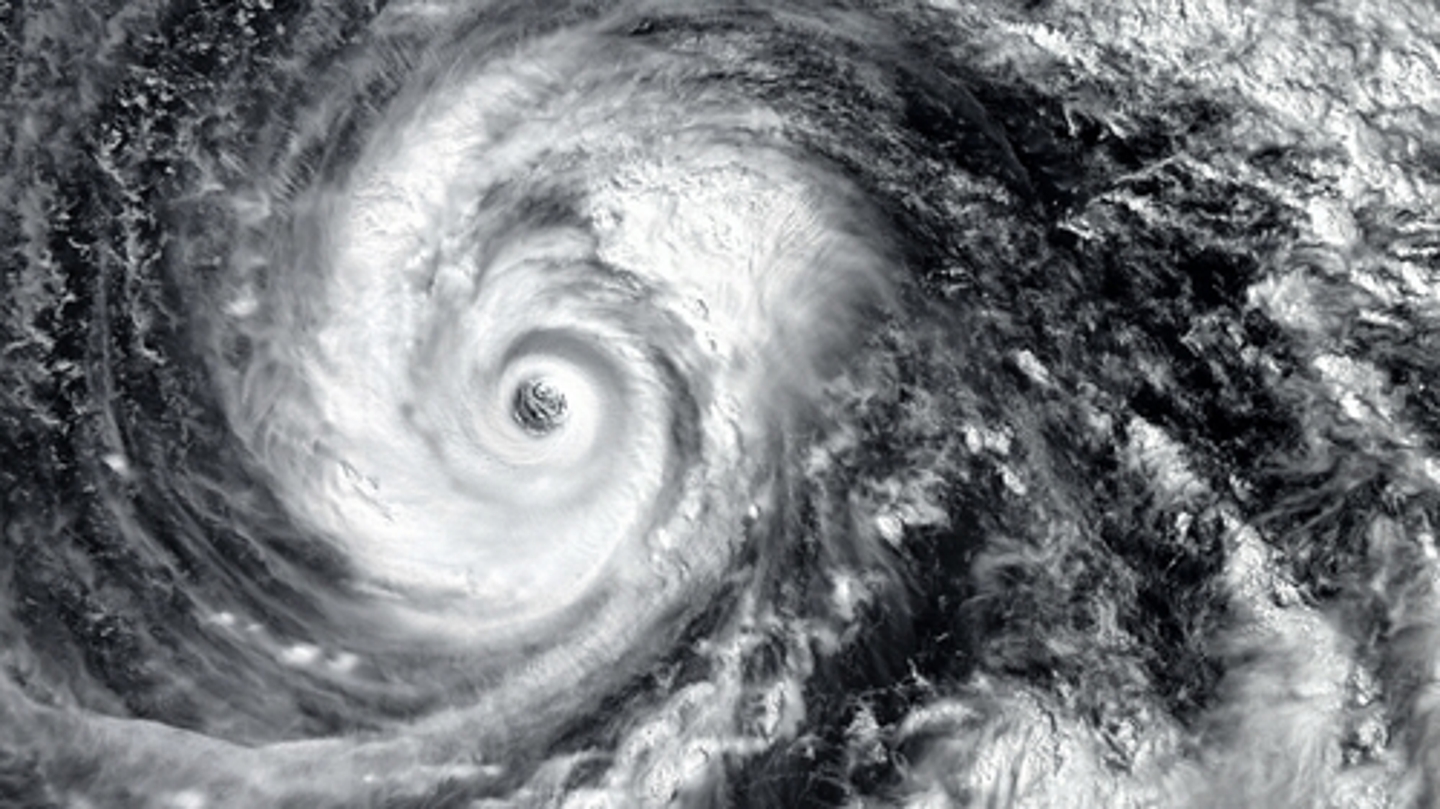
The 2024 Atlantic hurricane season is underway and this year weather officials are predicting above-average hurricane activity in the Atlantic basin. The National Oceanic and Atmospheric Administration (NOAA) is forecasting as many as 17 to 25 named storms this year, with eight to 13 predicted to become hurricanes. While these storms can be destructive, devastating, and deadly, there is more to a hurricane than meets the eye. We uncovered some uncommon facts about hurricanes that you may not know.
A Hurricane Does Not Start as a Hurricane
Hurricanes go through a series of changes before they become hurricanes. The Center for Science Education explains, “First, it starts as a tropical disturbance. Then, with cyclonic circulation and faster wind speeds, it becomes a tropical depression. If the wind keeps getting faster it becomes a tropical storm [cyclone] and then a hurricane if winds are more than 74 miles per hour (119 kph). This is why meteorologists keep a close eye on tropical cyclones as the storms can quickly develop into hurricanes.
Until 2012, Hurricanes Were the Only Named Storms
Thought Co states that The Weather Channel began naming significant winter storm events during the 2012-2013 season. Up until that time, according to the National History Museum of Utah, hurricanes were the only weather disasters that had been given names.
Who Picks the Names of Hurricanes?
The names of tropical cyclones and hurricanes that are used each year are chosen by the World Meteorological Organization (WMO). There are currently six lists of names being used in rotation and the 2022 name list with be used again in 2028, according to the WMO.
How Does a Hurricane Name Get Retired?
The WMO says a name can be retired or withdrawn at the request of any Member State of the WMO, “if that name acquires special notoriety because of the human casualties and damage incurred.” For example, Katrina, Sandy, and Michael, have all been retired from the list as those storms resulted in catastrophic damage and a significant loss of life.
What Was the Most Active Hurricane Season?
The National Hurricane Center (NHC) cites 2020 as the most active hurricane season to date. Meteorologists say there were a total of 31 tropical or subtropical cyclones in 2020 and only one failed to develop into a named storm. Of those 31 named storms, 14 developed into hurricanes and seven of those became major hurricanes. In that year, the tropical season name list from the WMO was exhausted, and the Greek Alphabet was used eventually concluding with Hurricane Iota.
Because of this record-breaking year, the WMO made the decision in 2021 to use a list of supplemental tropical cyclone names should the initial list of tropical cyclone names be exhausted in a single season.
How Big is a Hurricane?
Officials at Weather.gov say a typical hurricane is about 300 miles wide. However, storms can vary in size and shape. The outer rainbands of a hurricane contain dense thunderstorms that can cause extreme storm damage. Most hurricanes contain an eye that is a relatively calm, clear area approximately 20 to 40 miles in width. The winds closest to the eye of the storm are the strongest.
How Much Rain Does a Hurricane Contain?
According to NOAA, hurricanes can carry extreme amounts of rain within their cyclonic systems. Because hurricanes are constructed of warm air, the storm holds more moisture than a typical storm. Scientists say a typical hurricane can dump anywhere from six to 12 inches of rain across a region.
SERPVRO is Ready for the 2024 Atlantic Hurricane Season
Your local SERVPRO works hard to be prepared for any type of storm cleanup and repair. Our technicians are skilled and ready to offer roof tarp and board up services for your property after a storm strikes. And SERVPRO is ready for whatever the 2024 Atlantic hurricane season brings. From storm cleanup to catastrophic hurricane damage and restoration, we are always available with our 24-hour emergency services and Disaster Recovery Teams. Our teams are strategically placed ahead of the storm so that we can move in to help when the storm passes. Every day, any of our 2250 locations in the United States and Canada are available to you around-the-clock, including weekends and holidays.
For more than 50 years, SERVPRO has worked tirelessly to serve businesses and homeowners with our commercial and residential property cleanup, repair, and restoration needs. Each of our locations are staffed with IICRC certified professional technicians who are dedicated to serving you and your cleanup, repair, and restoration needs. It’s why we are the #1 choice in fire and water cleanup and restoration*. We work hard to make it “Like it never even happened.”
For more information, please visit our Storm Damage Resources.